Deeply Unhappy People Almost Always Send These 11 Texts During Casual Conversations
They're often subtle pleas for help.
 baranq | Shutterstock
baranq | Shutterstock Unhappiness is rooted in a lot of things — from childhood trauma to chronic stress from work, toxic relationships, and even mental health concerns. The root cause looks different for everyone, but sometimes, it's not just a fleeting emotion, but a constant foundation that follows and plagues people's daily lives.
Of course, community and healthy relationships often serve as a buffer against unhappiness, like a Harvard study explains, but when a person's sadness or disdain follows them into conversations, it can sabotage that feeling of community and belonging. Even in group chats, deeply unhappy people almost always send these texts during casual conversations that push people away and make them feel isolated.
Deeply unhappy people almost always send these 11 texts during casual conversations
1. 'I'm just really busy'
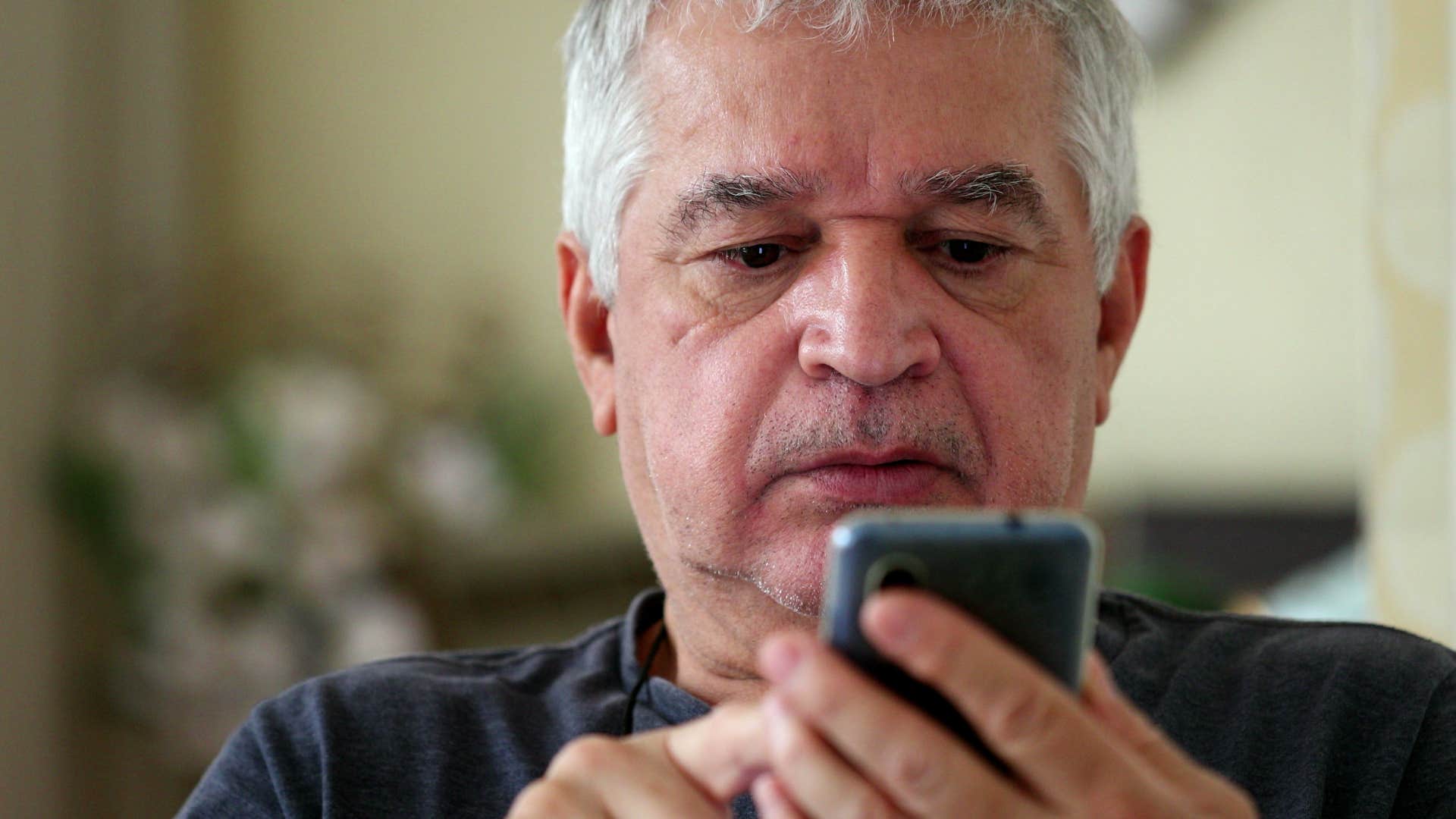 Bricolage | Shutterstock
Bricolage | Shutterstock
Social isolation and depression are inherently linked, according to a 2022 study. Of course, healthy solitude and intentional alone time can benefit relationships and mental health for people like introverts, but when avoidance and isolation are used to avoid social interactions and relationships entirely, unhappiness often follows.
If someone uses phrases like "I'm just really busy" to say "no" to social invitations online often, they could be dealing with stress or a heavy workload at work, but it could also be their way of garnering control over their unhappiness by isolating themselves in solitude at the expense of their long-term health and well-being.
2. 'I didn't want to bother you'
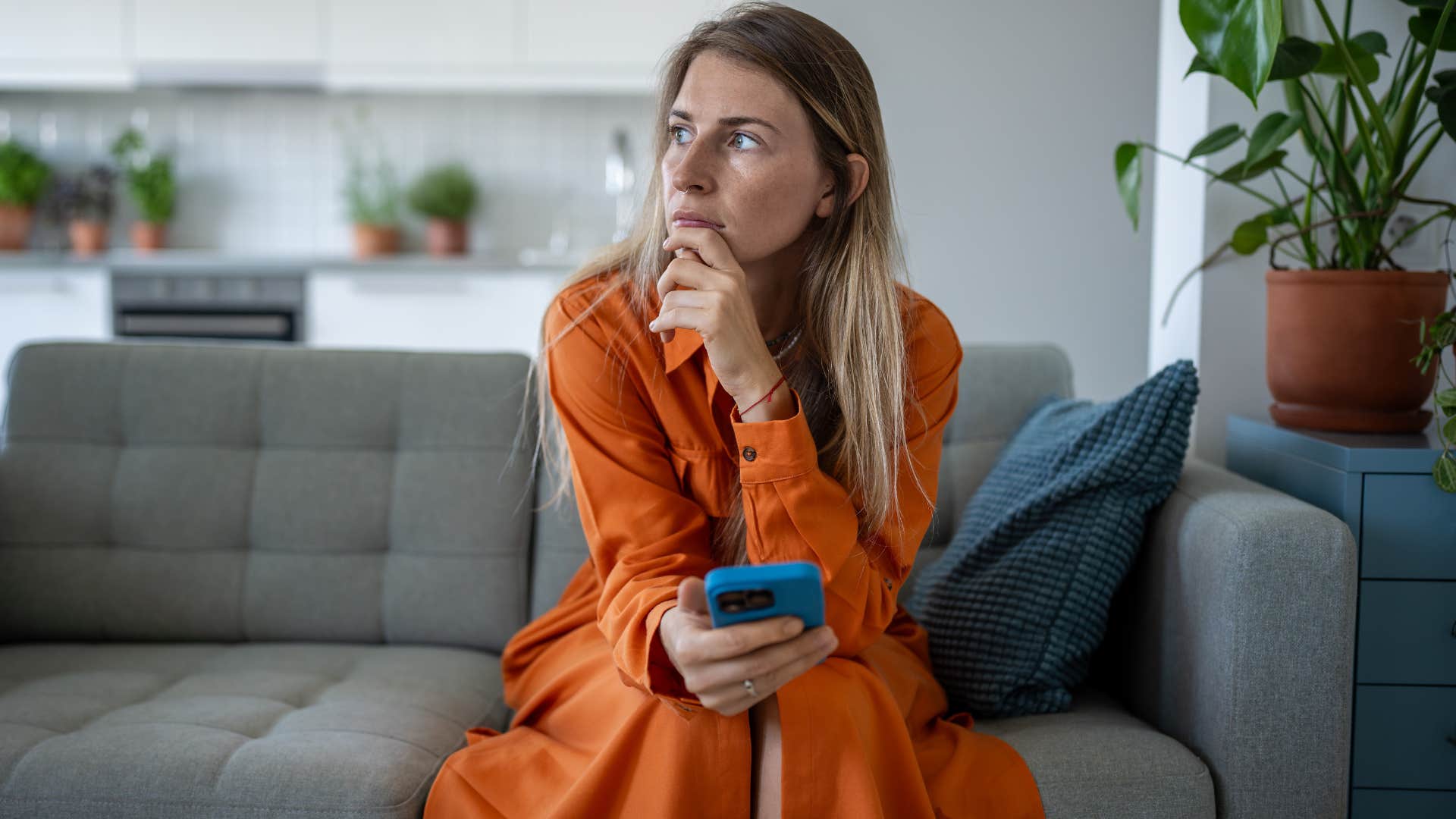 DimaBerlin | Shutterstock
DimaBerlin | Shutterstock
Many people who are deeply unhappy, with themselves, their identity, and their lives, feel the need to over-explain themselves and over-apologize for simply expressing emotions or asking for help. They feel burdening other people with their basic needs, because they experience the intensity of them on an everyday basis.
According to a study from Psychological Assessment, many people who feel burdensome to others completely avoid asking for help and isolate themselves from their social circles to cope. They fear breaking apart their relationships or hurting others with their feelings and needs, even if help and support are exactly what they need to feel better.
3. 'I'm just exhausted'
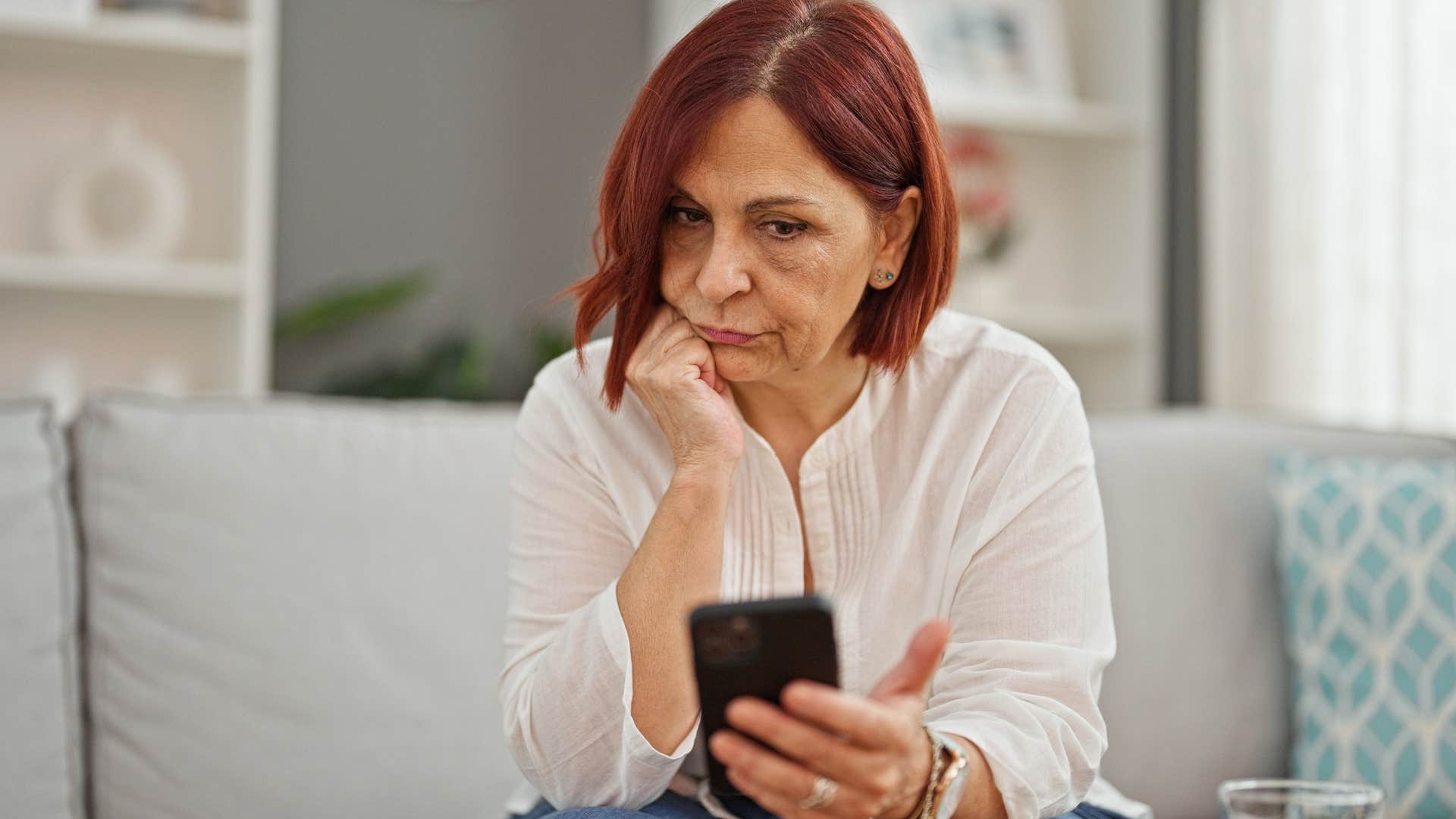 Krakenimages.com | Shutterstock
Krakenimages.com | Shutterstock
Of course, unhappy people dealing with a constant state of anxiety, fear, or insecurity are going to be exhausted. It's emotionally draining to always be coping with and suppressing emotions that plague daily life.
While it's typically associated with physical and cognitive labor in places like the office, emotional exhaustion and burnout can also come from psychological roots — like suffering from depression or grappling with an overwhelming sense of anxiety.
Even the word "just" in their text messages can be a sign that they're not taking care of themselves. They dismiss and invalidate their own deep emotions, suppressing them further inside, rather than being honest and asking for help from the people they love.
4. 'You probably don't even care'
 Melnikov Dmitriy | Shutterstock
Melnikov Dmitriy | Shutterstock
Before another person even has a chance to offer support or be kind in response to vulnerability, an unhappy person is preemptively putting negative thoughts in their mind. They use phrases like "You probably don't even care" as a way to protect themselves from being hurt, even if it sabotages the intentionality and support coming from others.
They perceive their efforts to ask for help and support are unwanted from the start, so even if they do express their emotions or get vulnerable, it's from an already detached and isolated place.
5. 'I'm so annoying'
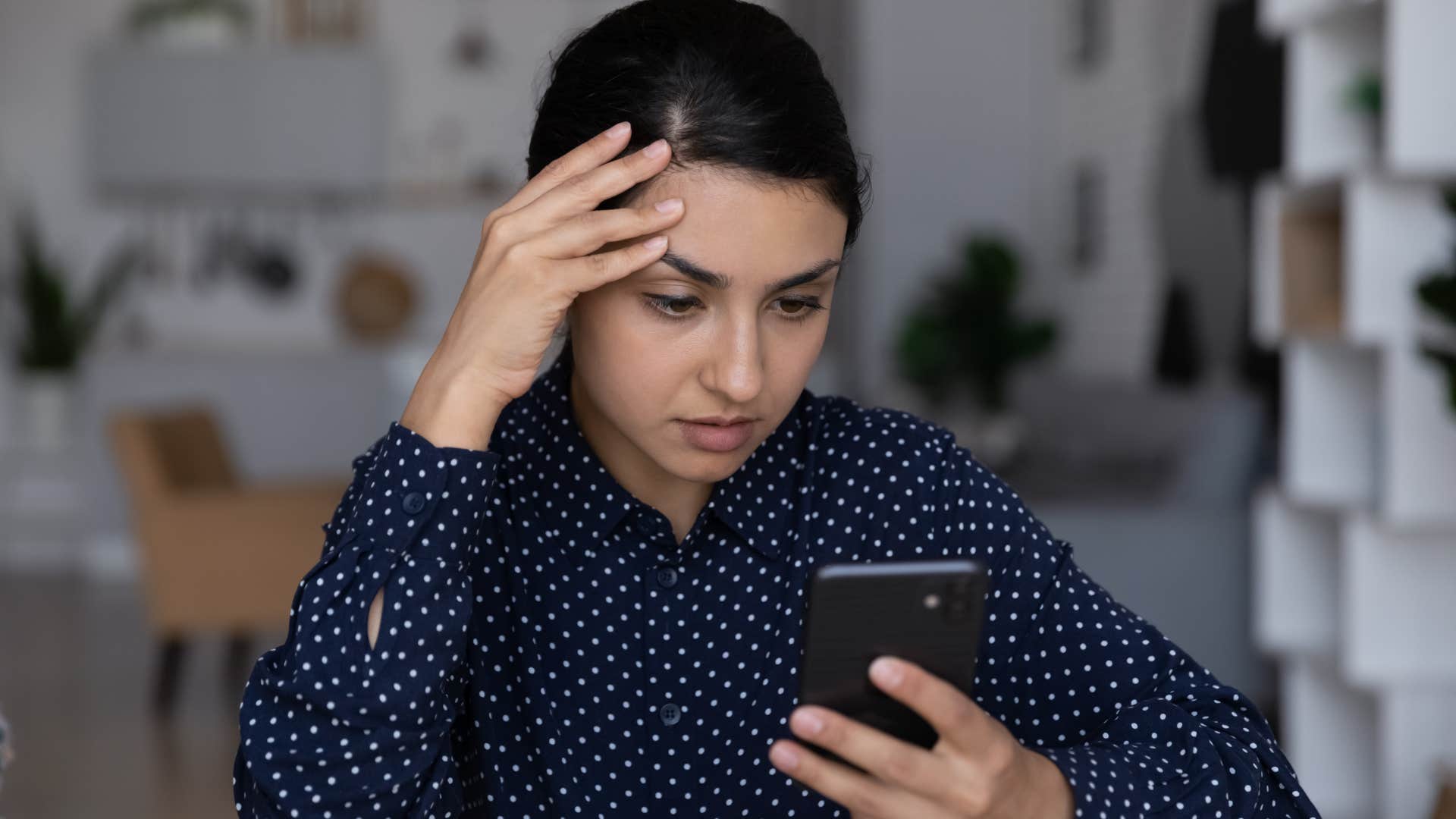 fizkes | Shutterstock
fizkes | Shutterstock
This feeling of being burdensome often isolates unhappy people from reaping the benefits of support from others and mutually beneficial relationships. Before anyone has a chance to help them or offer advice, they're met with self-demeaning phrases like "I'm so annoying" or "I'm overreacting" that serve as a protective measure for unhappy people to maintain a misguided sense of control.
Even if it's entirely subconscious, depressed and unhappy people are often incredibly self-focused. They harbor tons of feelings of self-blame and guilt that shift the focus of all their relationships and conversations toward them, even through the most innocent-sounding phrases.
6. 'It's not a big deal'
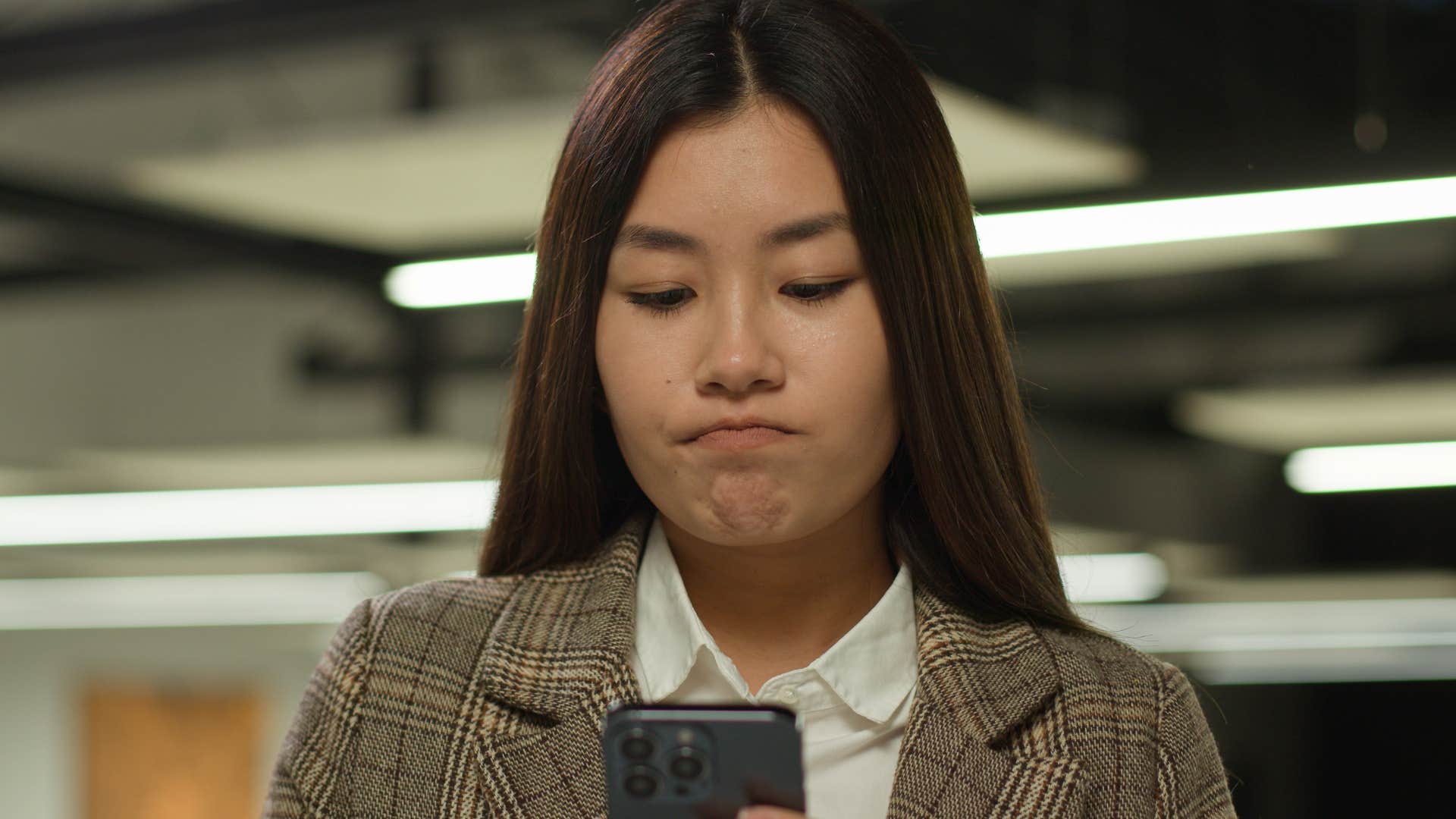 MAYA LAB | Shutterstock
MAYA LAB | Shutterstock
Validating your own emotions and bringing positive attention to personal struggles is just as important as having a safe place to express them to others. That's why phrases like "It's not a big deal" are so problematic for people already in an unhappy place — they're dismissing their need for support and invalidating their own struggles right from the start.
In the context of and in communication with others, emotions are addressed and acknowledged, according to a study from Emotion Review. So, when an unhappy person uses phrases like this, it sabotages their ability to truly acknowledge their emotions without immediately dismissing and suppressing them inside.
7. 'I don't want to be dramatic'
 Tonuka Stock | Shutterstock
Tonuka Stock | Shutterstock
According to a study from Personality and Individual Differences, guilt and internalized shame are often associated with a heightened tendency to over-apologize. An unhappy person often has that foundation of self-defeat in their lives, which prompts them to use phrases like this to apologize for asking for the bare minimum.
The best friends and loved ones will show up, no matter how happy you feel or how well your life is going. Unhappy people might try to push them away to cope with their own feelings of guilt, but they'll continue to show up.
8. 'I don't want to talk about it'
 PeopleImages | Shutterstock
PeopleImages | Shutterstock
By suppressing their own discomfort and negative emotions, unhappy people often feel like they can avoid dealing with their deep-rooted sadness or guilt. However, suppressing emotions only leads to more isolation and emotional turmoil.
In order to truly seek out support and deal with feelings of chronic unhappiness, you have to do more than sense passive casual texts like this that avoid the topic of discussion. Be open with your trusted loved ones. Ask for help when you need it. Make an effort to acknowledge your emotions as they come up, rather than suppressing them out of fear and immediate discomfort.
9. 'I miss when things were simpler'
 Prostock-studio | Shutterstock
Prostock-studio | Shutterstock
When you're in the midst of depression or unhappiness, it's easy to feel like your life has become a tangled web of stress, anxiety, and frustration. You may miss the "simplicity" of life without struggle, even if it's on the other side of asking for help or seeking support.
Deeply unhappy people almost always send texts like "I miss when things were simpler" during casual conversations, and even if they seem insignificant or innocent, they're red flags for a bigger concern.
10. 'I don't feel like myself'
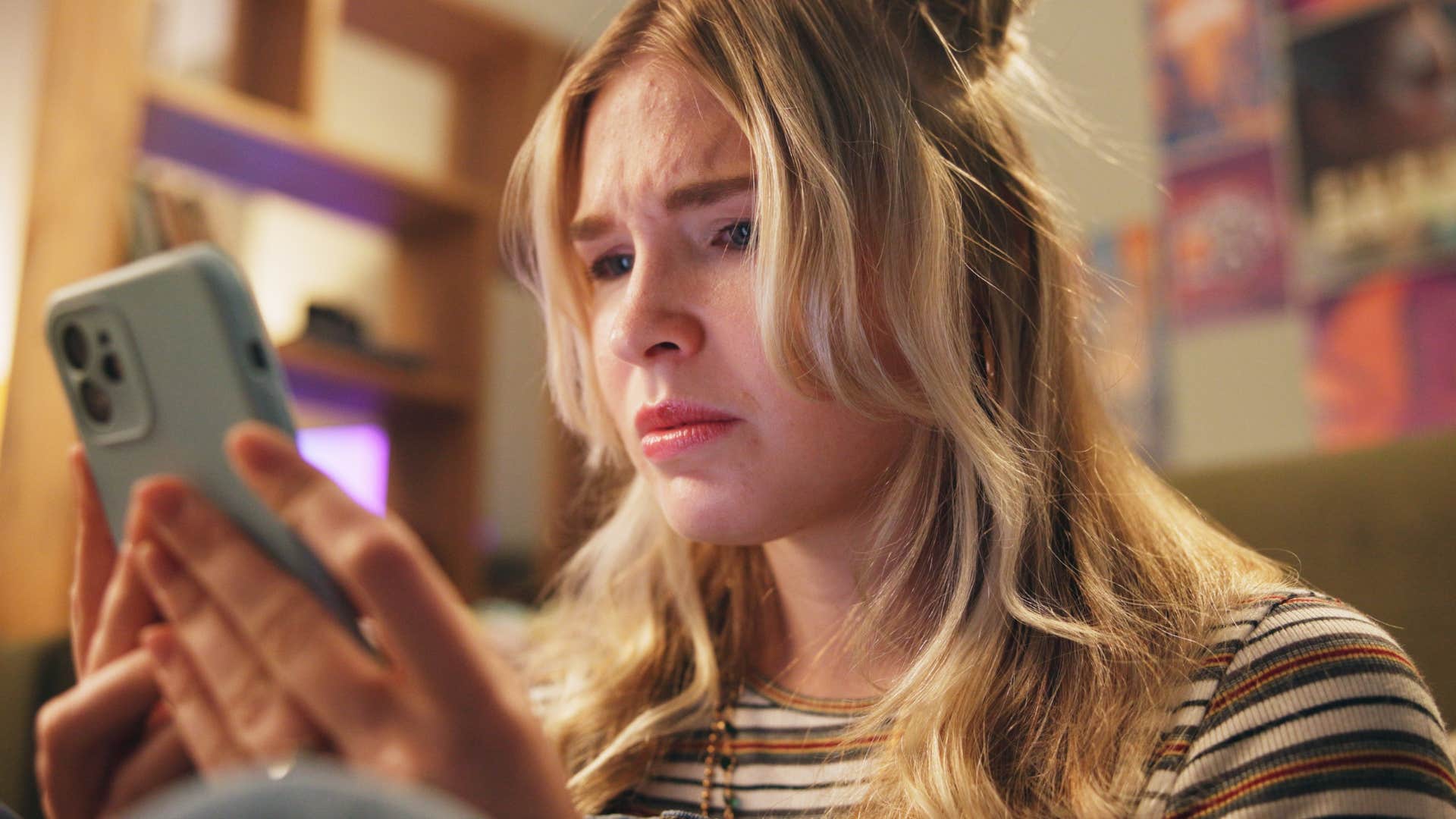 PeopleImages | Shutterstock
PeopleImages | Shutterstock
Considering depression heightens when self-concept lowers and a true, authentic identity is disrupted, it's not surprising that deeply unhappy people almost always send texts like "I don't feel like myself" during casual conversations. They may have less energy for healthy activities and hobbies in their solitude or even feel unsupported by their own crafted circle of friends, all of which are exhausting on their own.
Even if it's a subconscious and subtle plea for help from others, phrases that remind close friends and family that they don't feel like themselves are often red flags for depression and unhappiness.
11. 'I'm just going through it'
 evrymmnt | Shutterstock
evrymmnt | Shutterstock
If someone is regularly "in chaos" or having a crisis at the start of every single week, chances are it's not just stressors from work or relationships that's getting them down, but their chronic state of unhappiness. Even if they're actively hiding behind a facade, many people who are deeply insecure, unhappy, or anxious rely on "a crisis" or even minor inconveniences to find space to complain and cope.
Of course, they may understand that the root cause of their discomfort or sadness is deeper than simple inconveniences, but to feel safe expressing their unhappiness to others, they need a cover-up.
Zayda Slabbekoorn is a senior editorial strategist with a bachelor's degree in social relations & policy and gender studies who focuses on psychology, relationships, self-help, and human interest stories.

